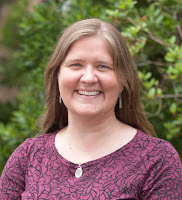By: Katie McCormack , EC-SEAT Scholar Assistive technology is defined as “any item, piece of equipment, or product system, whether acquired commercially off the shelf, modified, or customized, that is used to increase, maintain, or improve functional capabilities of a child with a disability” (Individuals with Disabilities Education Act, 2004). To the average person, the term “assistive technology” may be associated with expensiveness, technicality and complication. Unquestionably, assistive technology is a great concept, providing opportunities and opening previously closed doors to individuals with disabilities. Yet when thinking about the process of creating assistive technology, it can seem a bit intimidating… don’t you need a computer science or engineering degree? Don’t you have to use expensive tools and materials? Don’t you need to work in a special factory or lab? Well, yes. Sometimes. However, it is a little known fact that anyone (yes even YOU) is capable of creati


